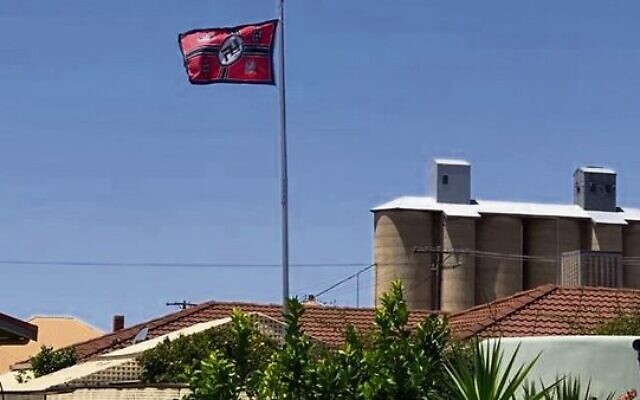Nazi symbols ban ‘too narrow’
The Executive Council of Australian Jewry has made a submission to a Parliamentary Joint Committee which is formulating public displays of Nazi symbols as a criminal offence.
The Executive Council of Australian Jewry (ECAJ) has raised concerns that the government’s proposed ban on Nazi symbols does not go far enough.
The roof body has made a submission to a Parliamentary Joint Committee which is formulating public displays of Nazi and Islamic State symbols as a criminal offence.
The Albanese government announced in June it would introduce legislation for the ban, with Attorney-General Mark Dreyfus stating, “There is no place in Australia for symbols that glorify the horrors of the Holocaust.”
ECAJ made its views known to the Parliamentary Joint Committee on Intelligence and Security, concerning its review of the Counter-Terrorism Legislation Amendment (Prohibited Hate Symbols and Other Measures) Bill 2023. The bill proposes not only to establish new criminal offences for the public display of these prohibited symbols but for trading in goods that bear such symbols.
Co-CEO Peter Wertheim told The AJN, “The government is to be commended for introducing a bill that would ban the public display of prohibited Nazi and Islamic State symbols, and trading in goods that bear those symbols. Regrettably, the bill has some serious shortcomings.”
Wertheim voiced concern that the ban would only apply to two Nazi symbols – the Hakenkreuz and the “SS” symbol. The public display of other well-known Nazi symbols such as the Totenkopf (death’s head) and Sonnenrad (sun wheel) will be unaffected, as will the use of a plethora of neo-Nazi symbols that have been developed and which are now well-recognised, especially online, as tools of recruitment and intimidation.
“The bill also makes no provision to address the public performance of Nazi salutes and similar gestures at sports events and outside Jewish institutions. At present, only one state, Tasmania, has introduced a bill to address this issue,” he said.
“Trading in Nazi memorabilia is also dealt with in only a limited way. The ECAJ submission has provided images of items, such as a replica can of Zyklon B gas pellets, which have been traded by auction houses in Australia. As odious as these items are, the bill will not ban anyone from trading in them, because these items do not bear the Hakenkreuz, the ‘SS’ symbol or any other Nazi symbol,” said Wertheim.
In its submission, ECAJ stated that both Nazism and the Islamic State “use hate speech, hate-fuelled behaviour and associated thuggery and menace to promote their dystopian vision of society”.
“The public display of Nazi and Islamist symbols and gestures with impunity is therefore an objective threat to our way of life and to the freedom, safety and security of all Australians.”


comments